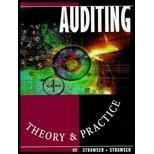Question
Unlike bonds, equity valuation is more complicated by the specific characteristics of the company, its leadership, what type of industry the company operates in, and
Unlike bonds, equity valuation is more complicated by the specific characteristics of the company, its leadership, what type of industry the company operates in, and a variety of other characteristics of the overall equity other financial markets. Presented below are specific characteristics of individual firms, industries, markets, or economic conditions. For each, suggest the most likely best method of valuating that equity and a short rationale for that choice. A growth technology firm that pays no dividends; A blue-chip firm that has paid dividends regularly for 40 years, with no major market changes or threats on the immediate horizon; A three year old technology firm with generally considered to have substantial potential for immediate growth in the in market share, followed by a five year period of much slower growth as the market matures A firm with a 12% difference in intrinsic value vs. its current market price. A company with a substantial one-time charge against earnings in the current year based on a one-time pension-fund adjustment. An equity index fund (a fund attempting to mirror the performance of the overall equity market). The first 12 months of 2017. While almost all of the methods are listed above rely on some method of calculation, giving them the appearance of being based on quantitative criterial or analysis, some of the assumptions used in selecting both the method or type of valuation may be susceptible to psychological effects. Note two methods of valuation that are susceptible to social interaction effects- and explaining what the effects are and how they can be counteracted. In 2017 we have a new President. Assess how the emotions of the overall financial community- and the individual investor, might be affected by either their highly positive, or highly negative, expectations of the actions of the President. Be specific how a prudent institutional investor would need to factor in both positive and negative emotions in their valuation of market conditions.
Step by Step Solution
There are 3 Steps involved in it
Step: 1

Get Instant Access to Expert-Tailored Solutions
See step-by-step solutions with expert insights and AI powered tools for academic success
Step: 2

Step: 3

Ace Your Homework with AI
Get the answers you need in no time with our AI-driven, step-by-step assistance
Get Started


